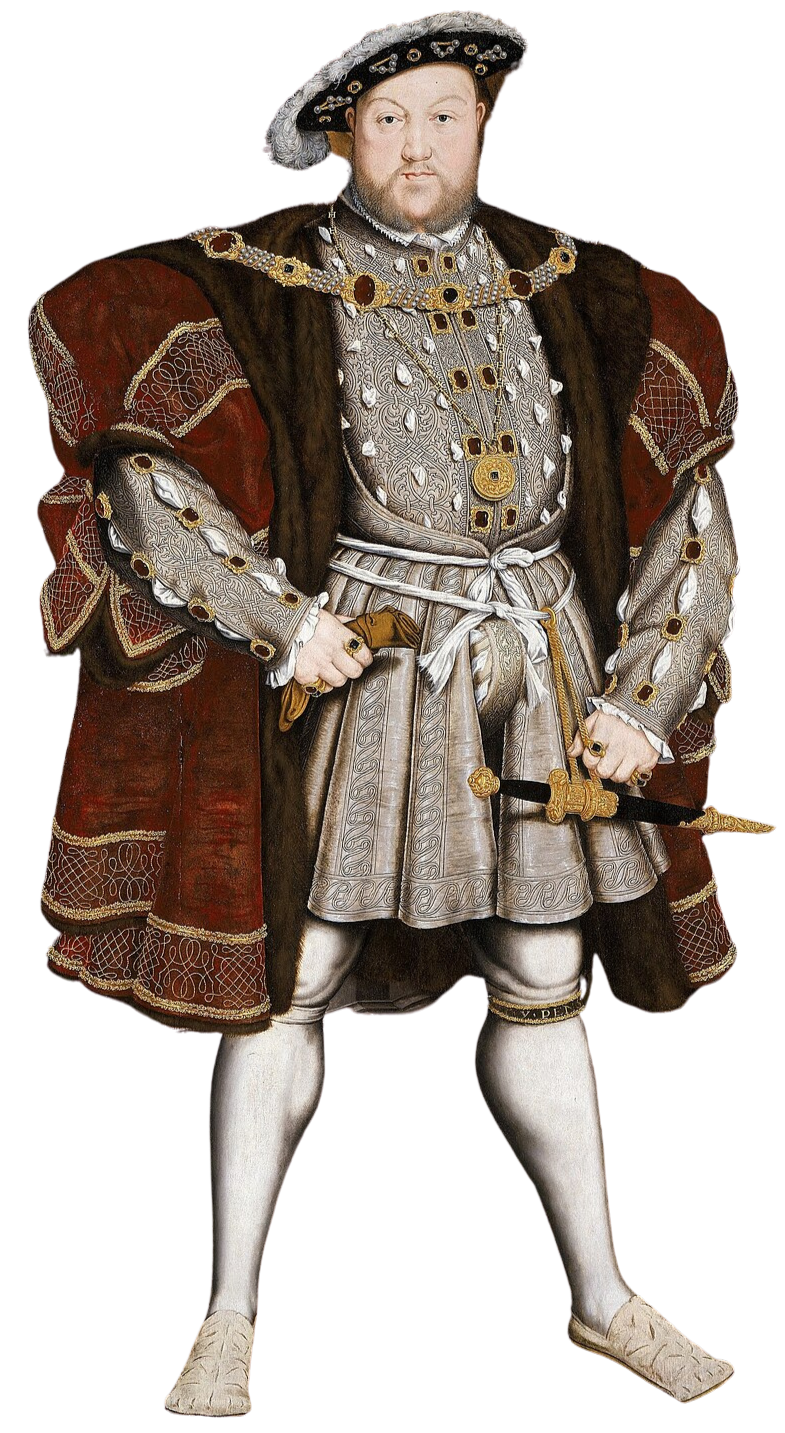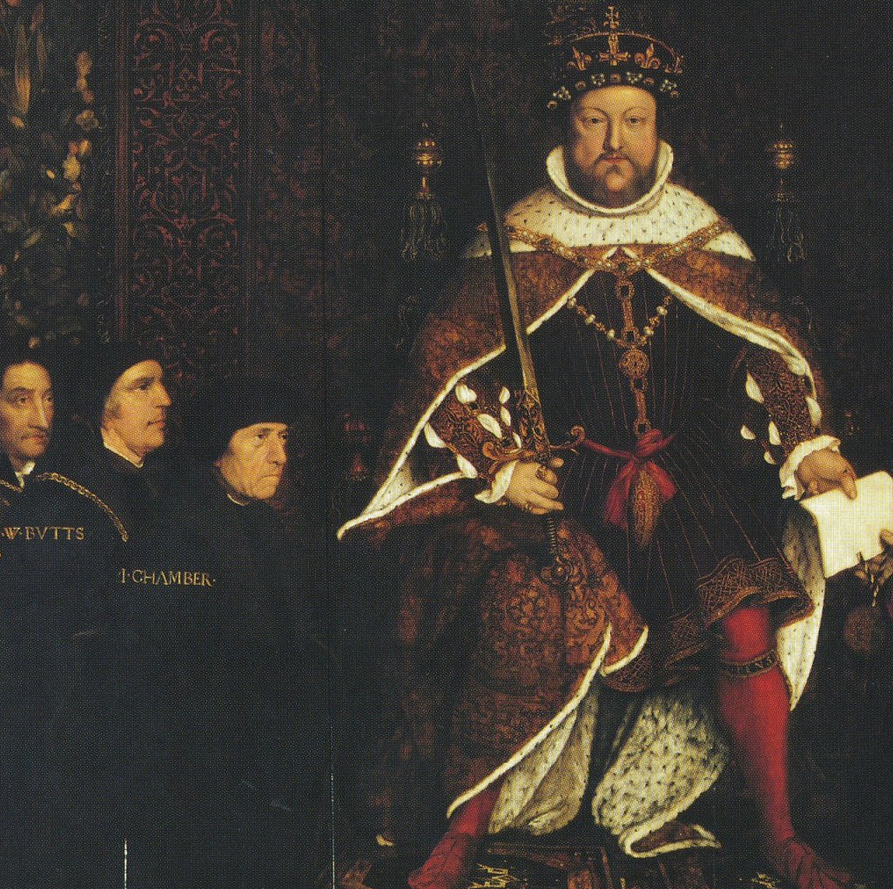Henry VIII
Henry VIII Begins Absolutism in Britain
Henry VIII of England (1491–1547) is one of the most famous kings in history, known as much for his six marriages as for his role in shaping the power of the monarchy. During the Age of Absolutism, when rulers across Europe were strengthening their authority, Henry VIII set the stage for England’s monarchs to claim greater control. By breaking from the Catholic Church and creating the Church of England, Henry made himself the ultimate religious and political authority in his realm. This bold move not only gave him power over the church’s wealth and influence but also showed how kings could bend tradition to secure their own supremacy.
Henry’s rule was dramatic, full of royal drama, and marked by his determination to get what he wanted; whether that was a male heir, land, or unquestioned obedience. His larger-than-life personality made him a symbol of absolute power, with courtiers and nobles often afraid to oppose him. While his decisions sometimes caused chaos, such as religious conflict and political tension, they also demonstrated the growing trend of rulers consolidating authority under one crown. In many ways, Henry VIII embodied the spirit of absolutism: a king who expected loyalty, controlled religion, and left behind a monarchy stronger than before—even if his personal life was as turbulent as his reign.






